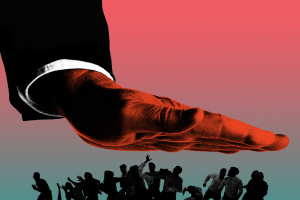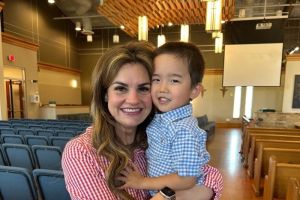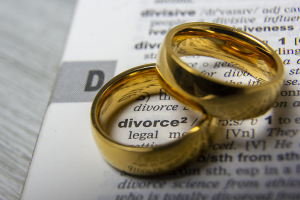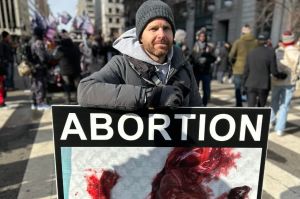Fuller's same-sex marriage lawsuit and federal student aid. ABHE president weighs in
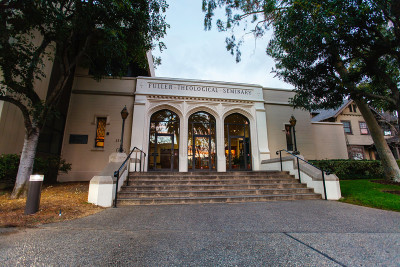
(Editor's Note: The author of this op-ed, Dr. Ralph E. Enlow, is the president of the post-secondary accreditation body the Association for Biblical Higher Education. Fuller Theological Seminary is accredited by the Western Association of Schools and Colleges Senior College and University Commission.)
In October 2018, Joanna Maxon filed suit against Fuller Theological Seminary in Pasadena, California. The lawsuit alleges that her dismissal as a student at the institution was unjust, in violation of her rights under the U.S. Education Act’s Title IX prohibitions against discrimination on the basis of sex on the part of institutions participating in federal student financial aid programs.
The seminary’s ability to comment on the lawsuit is constrained by the Family Educational Rights and Privacy Act (FERPA). What appears clear based on Maxon’s own statements, however, is that she enrolled as a Fuller student knowing her same-sex intimacy and marriage contradicted the institution’s published community standards and, in the course of doing so, she made false representations and statements concerning herself and her conduct. This past week, Nathan Brittsan, a pastor and Fuller graduate student, joined Maxson’s lawsuit.
That begs the question: Who is the victim here? Have Maxon and Brittsan been denied the ability to access Title IX federal student aid funding in support of their ministerial ambitions? Or has Fuller Seminary been subjected to a calculated assault on its constitutionally-protected First Amendment rights to free exercise of religion by disingenuous means?
In my respectful opinion, Maxon and Brittsan are not suing Fuller because they are being denied anything but because they and their ideological allies cannot abide any institution that dares to uphold long-standing community standards that deviate from their views. Which pattern better fits the definition of tyranny and injustice?
Consider a second question: What “sex discrimination” does Title IX explicitly protect? The Higher Education Act was enacted by Congress in 1972, long before same-sex marriage was legalized. Any attempt to construe it as applicable to sexual orientation and same-sex marriage protections is debatable, to say the least. Congress could speak to the issue, but it has not. Presidential administrations (Obama, Trump) have issued opposite, as-yet judicially untested, staff and institutional guidance. In any case, both the guidelines and its accompanying federal regulations anticipate possible religious objections to some of its provisions and offer the opportunity for exemptions.
Perhaps more importantly, I suggest we consider a third question: Are there social dividends associated with protecting the right of religious colleges to establish and uphold community standards consistent with their documented and sincerely held religious beliefs? To that question, I urge that we offer a resounding YES.
Confessional colleges — and not merely those that prepare professional religious workers — should be affirmed and protected by public policy.
In many ways, I am astonished I would be called upon to advocate for such a policy. The overwhelming majority of America’s post-secondary institutions have, for the overwhelming majority of America’s history from colonial days to the present, been confessional colleges. How is it that such colleges are now regarded as, at best, un-meriting of the “post-secondary” designation and attendant religious liberty protections, if not unworthy of even the right to exist?
To be sure, condescension toward religious colleges has been around a long time. They are variously alleged to be hopelessly sectarian, intellectually naïve, incompatible with academic freedom, academically inferior, morally and developmentally stifling. Such condescension, however, has been repeatedly and eloquently demonstrated itself naïve. Recently, distinguished New York Times and syndicated columnist, David Brooks, has weighed in on the matter (see The Road to Character).
Yesterday’s condescension, however, has given way to the undisguised, vitriolic contempt of today’s “post-truth” society. The Oxford English Dictionary offers the following definition of the term: Relating to or denoting circumstances in which objective facts are less influential in shaping public opinion than appeals to emotion and personal belief.
I have witnessed otherwise reasonable persons with seething rage assert that students who choose to attend colleges that require community covenants relative to biblical human sexuality should be denied eligibility for Title IV funding. Public policy efforts have moved well beyond the mere disestablishment of religion to active executive and judicial assault upon any vestige of public accommodation of religious conscience.
In view of this post-truth reality, perhaps it is futile to offer my reasons for a public policy that protects religious institutions. I venture to do so anyway.
Rationale No. 1: Evidence abounds that religious colleges serve the public good. Students engage in socially redemptive service learning. Graduates repay student loans, pay taxes, serve employers with integrity, and engage in charitable, public health, social justice, and relief causes at higher rates than their counterparts from other higher education sectors. Protecting and investing in religious colleges pays rich dividends and mitigates losses in terms of both social and economic capital.
Rationale No. 2: The principle that student aid should follow the student has guided federal policy from the very inception of those programs. It remains the wisest course. Students should be able to take their financial aid awards along with them to the institution most compatible with their personal values and aspirations. Although higher education undoubtedly serves the collective, it also serves the individual. Policy that prefers the collective benefits of higher education over the individual benefits is a phenomenon of collectivism, not of Declaration of Independence democratic principles.
Religious institutions are not only good for the students who enroll in them, they are good for our country. Public policy and public investment should reflect that. Period.
So, what about Maxon and Brittsan? As U.S. citizens, they are entitled to need-based federal student aid. There are plenty of institutions that do not proscribe same-sex marriage to which they have access to and to which they are free to apply their federal student aid. They are being denied nothing other than the capitulation of conscience required for approbation by a religious community that humbly and resolutely seeks to live out its historic religious commitments. Who are the victims indeed?
Dr. Ralph E. Enlow serves as president of the Association for Biblical Higher Education (www.abhe.org), a network of over 150 North American member and affiliate colleges. He served for 28 years as an educational leader at his alma mater, Columbia International University, culminating in a six-year stint as Senior Vice President and Provost.















